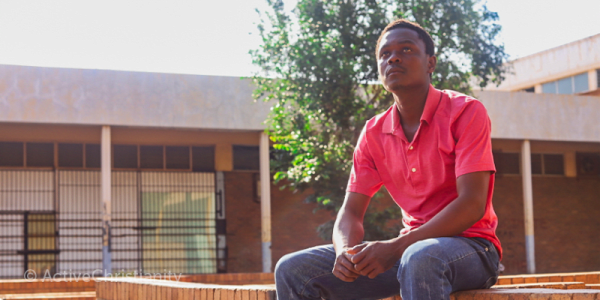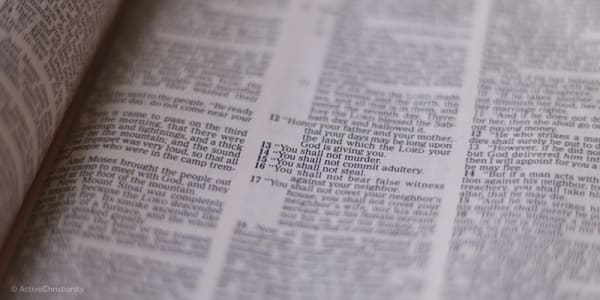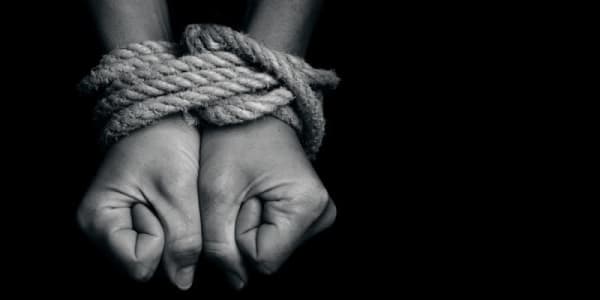It is written in God’s Word that it is sin that drives people away from God, and the result of sin is death. But what is it really? And how do you know when you have done sin?
What is sin? Knowing what is wrong
Sin is doing something that is against God’s laws, or not obeying God’s laws. (1 John 3:4)
God has written His laws about right or wrong behaviour in the heart of every human being. In other words, all people know what is right or wrong (Romans 1:19,20). When you are tempted to do something wrong, your conscience will quickly tell you that it is wrong to do it. Your conscience, which is your understanding of right and wrong, tells you when you already have sinned, and when you are about to do something that is against God’s will. It is meant to help you that you do not sin. Because your conscience is your understanding of right and wrong, it will be seen as sin if you don’t do what your conscience tells you.
But, we still understand very little, and our conscience may not always be exactly the same as God’s perfect will, because it can easily be moved or influenced by outside things - such as the way things are done or expected to be done by people around us and by what our parents have taught us. When you start to serve and obey God, He will send you the Holy Spirit to show you His perfect will. The Spirit can open your eyes in areas where your conscience cannot, and your understanding will become more and more the same as God’s will.
The fall – how sin entered the world
To understand what sin means, it is important to understand where it started. It came into the world when Adam and Eve believed Satan’s lie and disobeyed God. They obeyed their own will rather than God’s will and ate of the tree of the knowledge of good and evil. Their conscience woke up, and they got knowledge of right and wrong, and knew that they had sinned. Because they had been disobedient their human nature became corrupt, and they received a sinful nature, or sinful flesh.
Sin in the flesh (in one’s human nature) – Having sin
All of Adam and Eve’s children and future generations inherited this corrupt or sinful nature – they all were born with a desire to do their own self-will rather than God’s will. In Romans 7:18 (CSB) Paul writes: “For I know that nothing good lives in me, that is, in my flesh [my sinful nature].” Here he explains how we were all born with this desire to do sin. The Bible uses many words to describe this: sin in the flesh, sin in our human nature, the body of sin, the law of sin, lusts and desires, sinful desires etc.
John writes: “If we say that we have no sin, we are fooling ourselves, and the truth is not in us.” 1 John 1:8 (ICB). The sin that you have is this sin in your flesh, in your human nature, these sinful desires that you are born with. This is not your fault; it is something you are born with, and you don’t have to feel guilty about it. Every time you are tempted to something wrong, you will see this sinful desire. “We are tempted by our own desires that drag us off and trap us.” James 1:14 -(CEV). But there is a big difference in having sin, this is having a sinful nature – where you are trapped (caught) by your own wrongful desires – and doing sin.
When have you sinned or done sin?
James goes on to write: “These desires give birth to sinful actions. And when sin is allowed to grow, it gives birth to death.” James 1:15 (NLT). Here we see that temptation only becomes sin if you do the sinful thing that you are tempted to; that is when you knowingly agree with the sinful desire. Then you do sin, and it can be in what you think, or say or do. Now you are guilty. It is possible to receive forgiveness if you wholeheartedly repent. But after you have asked for forgiveness, it should be your goal to never to it again.
Read more here: “What is the difference between temptation and sin?”
Sin you are not aware of – deeds of the body
It is clear that you can do, say or think things that are against God’s will, without realising it. The Bible calls these acts “deeds of the body” and being a “prisoner of the law of sin” in your body (read about this in Romans 7 and 8). Because you did not know or realise that what you were doing, was wrong, you will not be punished for these “deeds of the body”. God will not judge you for the sin that you do not know is sin. But at a later stage it can become clear to you that these deeds are sin. Then you have to judge them and knowingly choose to say “No” to them - with the help of the Spirit. In Romans 8:13 this is described as “by the Spirit you put to death the deeds of the body”.
No one has to do sin!
Even though you have sin in your flesh, in your human nature, you do not have to do sin. When you are tempted to do something you know is wrong, you can choose not to do it. You can choose to do God’s will, instead of agreeing with your own sinful desires.
This understanding opens a door to a very exciting life! It really is possible to always have a pure conscience. It really is possible to live a life that is always pleasing to God! It really is possible to get victory over sin and death and it is really possible that God’s nature becomes part of us and that we will receive eternal life! (2 Peter 1:2-4).




